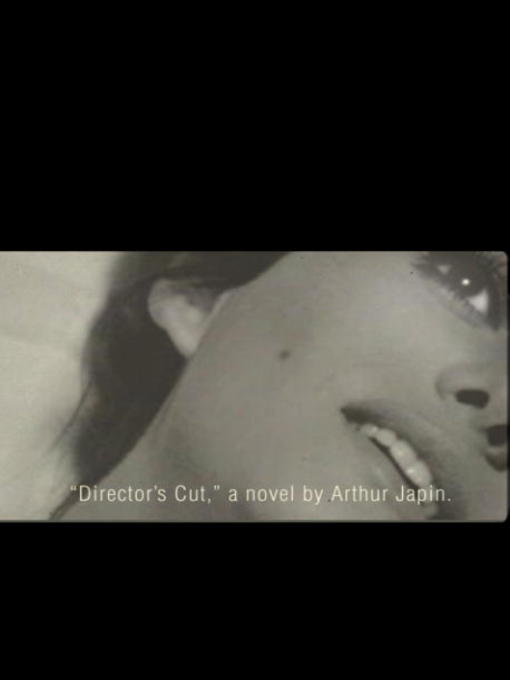
Director's Cut
- اطلاعات
- نقد و بررسی
- دیدگاه کاربران
نقد و بررسی

October 26, 2009
This story of romance between a young Dutch actress and a slightly fictionalized Federico Fellini flounders on poor plotting and overwrought prose. After being reared by a demanding father, Gala and an ambiguous male companion named Maxim travel to Rome in the 1970s to find their fortune as movie stars. There, the beautiful and epileptic Gala eventually attracts the ardor of Fellini stand-in Snaporaz. Told partially in the third-person and partially as Snaporaz's elegiac reminiscences, this potentially interesting story is hampered by clumsy prose; Snaporaz's frequent pronouncements often come off as banal or pretentious (“I gather strange butterflies. My white is made up of so many colors”). Plot momentum might have made such stylistic lapses easier to overlook, but Japin chooses to let his aspiring actors simmer in Italy with little to do for so long that Snaporaz's and Gala's eventual romance feels anticlimactic and belated. Though Japin, author of the widely praised In Lucia's Eyes
, brings together a number of promising elements, this book comes up short.

November 15, 2009
Japin (In Lucia's Eyes, 2005, etc.) follows up two excellent novels rooted in historical fact with a disappointing effort based on his personal history.
An Afterword acknowledges that the author and a beloved female friend are the models for Maxim and Gala, Dutch actors who cross the path of legendary Italian film director Snaporaz (read: Federico Fellini) in Rome during the 1980s. The opening chapters introduce us to Gala in 1966, painting a compelling portrait of a seven-year-old who provokes her father with reckless behavior. Maxim enters in 1976, when he and Gala are cast in a play at Amsterdam's student theater. This quiet, cautious young man is drawn to Gala, who galvanizes him with her boldness, and their charged relationship is sealed when he nurses her through an epileptic fit. Thereafter, Maxim is constantly reminding Gala to take her medication and fussing over her more like a father than a lover. Indeed, we learn after they arrive in Rome that they don't have sex, for cloudily explained reasons. Engaging monologues by Snaporaz are interpolated throughout, but the couple doesn't meet him until nearly halfway through the novel, after some La Dolce Vita–esque interactions with a down-at-the-heels aristocrat who pimps Gala out to a Sicilian doctor and an over-the-hill opera director (read: Franco Zeffirelli) who fancies Maxim. Japin vividly evokes the mingled desperation and exhilaration of impoverished actors on the loose in the magnificently corrupt Eternal City. But it all falls apart once Gala becomes Snaporaz's mistress. Despite some thematic mumbo-jumbo about"the more limitations you impose, the more possibilities you create," her self-imposed isolation and inaction—she won't even leave her apartment for fear of missing his phone calls—never makes sense, and Maxim's passive-aggressive response is equally baffling. You know a novel is in trouble when you find yourself thinking that the characters' problems could have been solved by call waiting or a cell phone.
Heartfelt, but murky and unpersuasive.
(COPYRIGHT (2009) KIRKUS REVIEWS/NIELSEN BUSINESS MEDIA, INC. ALL RIGHTS RESERVED.)

November 15, 2009
This is a novel of young love, but it is also an engaging philosophical treatise on the power of imagination. Similar to Japin's last two novels ("The Two Hearts of Kwasi Boachi" and "In Lucia's Eyes"), this is a work of historical fiction. Incorporating elements of his autobiography into the fabric of the narrative, Japin (fictionalized here as the character Maxim) details the dissolution of Maxim's relationship with a young actress, Gala, via a love triangle with the famed Italian director Federico Fellini, whom Japin here refers to as Snaporaz. Japin's innovative approach is to advance the story of Maxim and Gala within the narrated memory of Snaporaz, interleaving the tales of each man's romance with Gala in a cinematic fashion. The reader is immediately drawn into a narrative wherein a great tale of young adults mixes with Snaporaz's philosophical appreciation for a broadening vision of the arts. VERDICT Japin successfully delivers a heartbreaking description of that most elusive, complicated, and yet rewarding of human relationshipstrue love. Although this is evocative of the film "Synecdoche, New York", Japin's storytelling is more lucid than Charlie Kaufman's.Joshua Finnell, Denison Univ. Lib., Granville, OH
Copyright 2009 Library Journal, LLC Used with permission.




دیدگاه کاربران